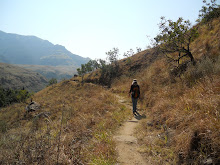I sometimes cut pictures out of magazines of smiling faces – the ones that make me want to smile back. The litoverlap in the middle of this post is not cheerful. The first component is impressive in terms of literary form, but as to content both components are more than sobering. So as a fortifying frame for this litoverlap, I’ve picked a couple of other written things, passages from blog posts, that make me smile – mostly for their figurative language and aptness.
On 1 September 2010, Jane Brocket commented:
Yesterday morning, with a feeling of mild sadness, I threw away the amazing frilly-knicker, head-turning gladioli that have been centre-stage in the kitchen for a week – they had created their own space and the table looks so empty now.
I know just what she means in the conclusion of that sentence. And the pleasure in the language is to be had in the image of flowers personified, flashing their brightly coloured knickers like cancan girls would toss their petticoats and turn heads whenever they appeared, like Brocket’s flowers, centre-stage. They’re neat and precise, this sentence and its sentiment, ending where they begin: with absence, which recalls presence.
 Here’s the litoverlap:
Here’s the litoverlap:
In Anne Michaels’ novel Fugitive Pieces (1996, New York: Vintage), the first narrator points out a ‘harrowing contradiction’ in the anti-Semites’ attempts at dehumanising the Jews during the reign of the Third Reich:
'When citizens, soldiers, and SS performed their unspeakable acts, the photos show their faces were not grimaced with horror, or even with ordinary sadism, but rather were contorted with laughter. ... This is the most ironic loophole in Nazi reasoning. If the Nazis required that humiliation precede extermination, then they admitted exactly what they worked so hard to avoid admitting: the humanity of the victim. To humiliate is to accept that your victim feels and thinks, that he not only feels pain, but knows that he’s being degraded.' (p 166)
François Gantheret points out the same thing in his novel Lost Bodies (2006, London: Vintage, transl by Euan Cameron). The book is about a man who was one of several political prisoners confined for years in a well in a desert prison camp. Some of the soldiers guarding these prisoners were ‘attracted by the easy opportunities for bullying’ – the man had often ‘seen them laughing’ as they abused the prisoners in various ways (p 18). But
'such acts were not approved of by the others: not so much out of any humanitarian concern, but because they violated the required indifference. To humiliate a man was to acknowledge that he was still a human being, and in their confusion the soldiers sensed that they could not feel at ease in a place like this if they treated those who survived beneath the ground as humans.' (p 18)
On 28 May 2010, Paul Edmunds described a flight home to Cape Town:
I knew the ’plane was headed home when I caught sight of a Sunday Times headline in the galley. It could have been from 2 months ago: threat of strike action during the World Cup. After a mad dash through OR Thambo and a little hitch at customs, we boarded our connecting flight to Cape Town to find in front of us Archbishop Emeritus Tutu and behind us Badhi Chaabaaan, reminding us of the tightrope we walk, tautly strung and twitching side to side from hope to cynicism.
It’s striking, the tightrope metaphor; it’s also one that fulfils the requirements, as pointed out by Michaels in her article ‘Cleopatra’s Love’ (1994, Poetry Canada 14(2)), of metaphor’s quiddity – each component must work in its own context so that the metaphor as a whole works authentically (p 14). Tutu represents hope, Chaaban symbolises cynicism. Impromptu TV news interviews of the South African man and woman in the street often show just such a veering between optimism and pessimism, characterised by just such an attendant tension. And Edmunds experiences the metaphor personally because it reminds him of South African attitudes that he may have forgotten or put to one side during his time in New York.



No comments:
Post a Comment